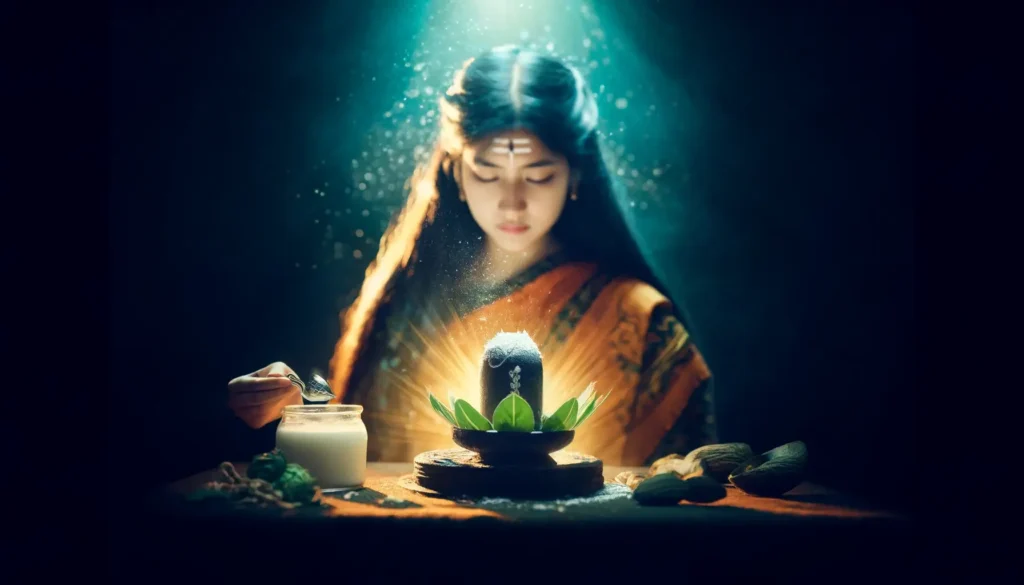Mahashivratri 2025 will be celebrated on February 26, 2025. This festival is considered highly auspicious for worshipping Lord Shiva and seeking his divine blessings. On this day, Shiva devotees observe fasting, stay awake throughout the night (Jagran), and perform Jalabhishek (ritualistic bathing of Shiva Lingam) to please Lord Shiva.
Significance of Mahashivratri
The word “Mahashivratri” means “The Great Night of Shiva.” It is observed on the Chaturdashi Tithi (fourteenth day) of Krishna Paksha in the month of Phalguna. According to religious scriptures, this day marks the divine marriage of Lord Shiva and Goddess Parvati. Another belief states that on this day, Lord Shiva manifested himself in the form of a Shiva Lingam.
For Shiva devotees, this occasion holds special significance, as observing fast and staying awake in devotion destroys sins and leads to liberation (moksha).
Importance and Rituals of Jalabhishek on Mahashivratri
According to sacred texts, performing Jalabhishek (offering water to Shiva Lingam) on Mahashivratri grants divine blessings and fulfills wishes. This ritual involves using various holy ingredients.
Steps for Performing Jalabhishek
- Purification of the Shiva Lingam – The Shiva Lingam is bathed with Ganga water, milk, curd, ghee, honey, and sugarcane juice.
- Offering Bilva Leaves – Bilva leaves are sacred to Lord Shiva and must be placed on the Lingam after Jalabhishek.
- Offering Datura and Bhang – Lord Shiva is pleased when devotees offer Datura flowers and Bhang on the Lingam.
- Chanting Rudrabhishek Mantras – During Abhishek, “Om Namah Shivaya” should be chanted continuously. Additionally, Rudrashtakam, Shiva Tandava Stotra, and Mahamrityunjaya Mantra should also be recited for divine benefits.
- Lighting a Lamp and Performing Aarti – After the Abhishek, a lamp is lit, and Shiva Aarti is performed, followed by offering bhog (sacred food).
Fasting Rituals and Benefits of Mahashivratri
Fasting on Mahashivratri is believed to bring Lord Shiva’s divine blessings and freedom from life’s sufferings. Devotees observe strict fasting, consuming only fruits and water.
How to Observe the Fast?
- Take a ritual bath in the morning, wear clean clothes, and take a vow to observe the fast.
- Perform Jalabhishek and worship Lord Shiva.
- Refrain from eating grains and cooked meals; only consume milk, fruits, or water.
- Stay awake at night (Jagran) and sing bhajans and hymns in devotion to Lord Shiva.
- Break the fast (Parana) the next morning after offering prayers.
Benefits of Observing Mahashivratri Fast
- Fulfills wishes and desires.
- Grants freedom from diseases and troubles.
- Brings harmony in marital life.
- Helps in attaining Moksha (salvation).
Mythological Stories Related to Mahashivratri
1. The Story of Shiva-Parvati’s Marriage
According to mythology, Goddess Parvati performed severe penance to attain Lord Shiva as her husband. Impressed by her devotion, Lord Shiva accepted her as his consort, and their wedding took place on Phalguna Krishna Chaturdashi. Hence, Mahashivratri is also celebrated as Shiva-Parvati’s Divine Wedding Anniversary.
2. The Story of the Appearance of the Shiva Lingam
Another legend tells that once, Lord Vishnu and Lord Brahma argued over who was the supreme deity. To settle their dispute, Lord Shiva appeared as an infinite pillar of fire (Jyotirlinga) and challenged them to find its beginning and end. Both gods failed and realized Lord Shiva’s greatness. This event is commemorated on Mahashivratri as the emergence of the Shiva Lingam.
3. The Story of Lord Shiva Drinking Poison
During the churning of the ocean (Samudra Manthan), a deadly poison emerged along with divine nectar. To save the world, Lord Shiva consumed the poison and held it in his throat, which turned blue, earning him the name Neelkanth (the blue-throated one).
This selfless act symbolizes sacrifice and divine protection, which is why devotees worship Lord Shiva with immense faith on Mahashivratri.
What to Do and What to Avoid on Mahashivratri?
Things to Do:
- Offer water, milk, honey, and Ganga Jal to the Shiva Lingam.
- Chant “Om Namah Shivaya” continuously.
- Stay awake at night (Jagran) and recite Shiva Chalisa, Rudrashtakam, and Shiva Tandava Stotra.
- Donate food and clothes to the needy.
Things to Avoid:
- Do not eat grains, wheat, or heavy meals.
- Avoid telling lies, stealing, or engaging in negative actions.
- Refrain from disrespecting others or losing your temper.
- Do not offer Tulsi leaves to the Shiva Lingam.
Mahashivratri is a sacred festival that offers devotees an opportunity to seek Lord Shiva’s blessings for peace, prosperity, and liberation. Fasting, performing Jalabhishek, and staying awake in devotion on this day removes sins and hardships from life.
By worshipping Lord Shiva with sincerity, one can attain happiness, good fortune, and ultimate salvation.
May this Mahashivratri 2025 bring divine blessings, peace, and prosperity into your life!
Har Har Mahadev!
